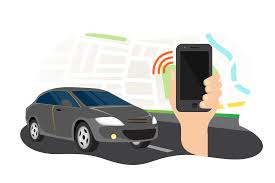
Week 3 Task:
A group of entrepreneurs in Nigeria plan to start a new ride hailing technology startup. They have developed a mobile app that connects passengers with drivers for transportation services. They are ready to register the startup and launch their platform. They have approached you and sought your legal advice on how they can successfully achieve their objective. Advise them appropriately.
Questions
1. What type of business structure is most suitable for an e-hailing tech startup in Nigeria
2. What specific legal requirements and regulations should the startup comply with
3. How can the startup protect its intellectual property, such as the mobile app and business model?
4. What are the potential challenges and risks associated with operating an e-hailing tech startup in Nigeria?
5. What are the necessary licenses and permits required to operate an e-hailing service in Nigeria?
Legal Framework for a Nigerian E-Hailing Tech Startup
- Suitable Business Structure
A business structure describes the legal structure of a company that influences the day-to-day operations of a business. In Nigeria, company operations are guided by the Companies and Allied Matters Act of 2020.
For a Nigerian e-hailing tech startup, selecting the appropriate business structure is pivotal for operational success and legal compliance. Among various options, a Private Limited Company (Ltd) emerges as the most suitable structure for several reasons:
- Limited Liability: One of the foremost advantages of forming a Private Limited Company is limited liability. Shareholders' liability is confined to the amount they have invested in the company, thereby shielding their personal assets from business-related debts and liabilities. This protection is crucial in mitigating financial risk and encouraging investment.
- Separate Legal Entity: A Private Limited Company is recognized as a separate legal entity distinct from its owners. This separation ensures that the company can own property, enter into contracts, and be sued independently of its shareholders. It provides a robust legal framework that supports the company's operational integrity and longevity.
- Flexibility: Private Limited Companies offer flexibility in management and ownership. The company's affairs can be managed by its directors, who are appointed by the shareholders. This structure allows for efficient decision-making and adaptability in response to market changes, which is essential for a dynamic sector like e-hailing.
- Tax Benefits: Private Limited Companies benefit from specific tax advantages, including potentially lower corporate tax rates compared to individual taxation. This tax efficiency can enhance profitability and provide more capital for reinvestment and growth.
2. Legal Requirements and Regulations
Nigerian laws have special rules and regulations guiding businesses in the country. Failure to abide by or adhere to these rules may lead to such business lacking legal recognition and rights. Some of these include registration and incorporation.
Section 18 of The Company and Allied Matters Act provides for the right to form a company by incorporation and registration in compliance with the Act.
Compliance with legal requirements and regulations is crucial for the successful operation of an e-hailing startup in Nigeria. The following regulations are particularly relevant:
- Company and Allied Matters Act (CAMA): The CAMA is the primary legislation governing corporate affairs in Nigeria. It mandates that the startup must register with the Corporate Affairs Commission (CAC) to operate legally as a Private Limited Company. This registration provides legal recognition and legitimacy to the business, facilitating operations and partnerships.
- Federal Inland Revenue Service (FIRS): The startup must obtain a Tax Identification Number (TIN) from the FIRS. Compliance with tax laws, including corporate income tax, value-added tax (VAT), and other relevant taxes, is essential to avoid legal penalties and maintain good standing.
- National Information Technology Development Agency (NITDA): NITDA regulates information technology practices in Nigeria. If the startup handles substantial amounts of data or engages in technology-related activities, it may be required to register with NITDA. Adhering to data protection and IT compliance standards is crucial for safeguarding user information and maintaining regulatory compliance.
3. Intellectual Property Protection
Protecting intellectual property (IP) is critical for securing competitive advantages and fostering innovation. For an e-hailing startup, the following IP protections should be considered:
- Copyright: Registering the copyright for the mobile app's source code and user interface ensures that the intellectual work is legally protected against unauthorized reproduction and distribution. This protection extends to the software's unique code and creative aspects, including design elements and user experience features.The legal framework protecting this in Nigeria is the Copyright Act of 2022.
- Trademark: Registering the startup's name and logo as trademarks is essential for brand protection. Trademarks safeguard the brand's identity and prevent others from using similar marks that could lead to confusion or dilution of brand value. Effective trademark registration builds brand recognition and trust among users. The legal framework for this is the Trademark Act of 2004.
- Patent: If the startup has developed a novel technology or process, applying for a patent provides legal protection against unauthorized use or replication of the innovation. Patents grant exclusive rights to the inventor, enhancing the startup's competitive edge and potentially attracting investment. This is governed by the Patent and Designs Act of 2004.
- Non-Disclosure Agreements (NDAs): NDAs are vital for safeguarding confidential information. Requiring employees, contractors, and investors to sign NDAs ensures that sensitive business information, including trade secrets and proprietary technology, is protected from unauthorized disclosure.
4. Potential Challenges and Risks
Operating an e-hailing tech startup in Nigeria involves navigating several challenges and risks:
- Regulatory Uncertainty: The regulatory environment for e-hailing services in Nigeria is evolving, which can create uncertainties for startups. Changes in regulations or new legislative requirements may impact business operations, necessitating ongoing monitoring and adaptability.
- Competition: The Nigerian e-hailing market is highly competitive, with established players and new entrants vying for market share. To succeed, the startup must differentiate itself through unique value propositions, superior customer service, and innovative features that meet the needs of both users and drivers.
- Infrastructure Challenges: Nigeria's infrastructure, including road conditions, scarcity of petroleum and internet connectivity, may pose operational challenges. Ensuring that the technology infrastructure supports seamless operations and addressing logistical issues related to transportation can impact service quality and user satisfaction.
- Safety Concerns: Ensuring the safety of passengers and drivers is a significant concern. The startup must implement robust safety measures, including background checks for drivers, in-app safety features, and emergency protocols, to build trust and provide a secure service.
5. Necessary Licenses and Permits
To operate legally and efficiently, the startup must obtain various licenses and permits:
- Business Premises License: A permit to operate from a physical location is required. This license ensures that the business complies with local zoning and operational regulations.
- Operating License: The startup must secure an operating license from relevant government agencies, which authorizes the provision of e-hailing services. This license ensures compliance with regulatory standards and legitimizes the service offering.
- Vehicle Inspection Certificates: All vehicles used by drivers must be roadworthy and comply with safety standards. Obtaining vehicle inspection certificates is crucial for maintaining safety and regulatory compliance.
- Driver’s License: Verification of drivers' licenses is necessary to ensure that all drivers are legally qualified to operate vehicles. This step helps maintain safety and regulatory adherence.
- Insurance: Comprehensive insurance coverage for vehicles, passengers, and drivers is essential. Insurance provides financial protection against accidents and liability, ensuring that the startup can manage risks and offer reliable services.
Conclusion
Navigating the legal landscape for a Nigerian e-hailing tech startup involves careful consideration of business structure, regulatory compliance, intellectual property protection, and risk management. By establishing a Private Limited Company, adhering to relevant regulations, protecting intellectual property, addressing potential challenges, and obtaining necessary licenses and permits, the startup can build a solid foundation for success and sustainability in the competitive e-hailing market.

